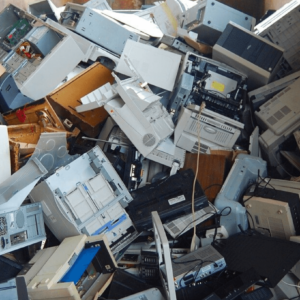Services
"Reparyog: Transforming Waste into a Sustainable Future. Our dedicated waste management services prioritize environmental responsibility, recycling, and renewable energy solutions. Together, let's create a cleaner, greener world for generations to come."
 Dismantling
Dismantling
“Dismantling” refers to the process of taking apart a structure or machine in order to decommission it, recycle its components, or dispose of it properly. In the context of global warming, dismantling may refer to the process of breaking down old, inefficient, or polluting infrastructure and equipment in order to reduce carbon emissions and promote sustainability. Reparyog services can play a role in reducing global warming by providing services for the proper management of waste materials. When waste is not managed properly, it can contribute to greenhouse gas emissions, which can worsen the effects of climate change.
Waste management companies like Reparyog can help to reduce the amount of waste that ends up in landfills, which emit methane, a potent greenhouse gas, as well as other pollutants that can harm the environment. Reparyog can also help to recycle materials that would otherwise be discarded, reducing the need for new resources to be extracted and processed, which can also contribute to carbon emissions.
Additionally, Reparyog exploring ways to convert waste into renewable energy sources, such as biogas or biofuels, which can reduce the reliance on fossil fuels and further mitigate the effects of climate change. In summary, dismantling and waste management are important components in the fight against global warming. Properly managing waste can help to reduce carbon emissions and promote sustainability, while dismantling old, inefficient, or polluting infrastructure and equipment can help to reduce the overall carbon footprint of human activities.

Scrap Disposal
1. Reducing landfill waste: Scrap disposal companies like Reparyog can help reduce the amount of waste that ends up in landfills, which can reduce the production of methane gas, a potent greenhouse gas.
2. Recycling materials: Reparyog can recycle materials such as metals, plastics, and paper, reducing the need to extract new raw materials from the environment. This can help to reduce the energy and water consumption required for production, as well as reducing greenhouse gas emissions associated with transportation and processing.
3. Conserving resources: By recycling and repurposing materials, Reparyog can help conserve natural resources and reduce the demand for new resources.
4. Improving air and water quality: Proper disposal of scrap materials can prevent harmful chemicals and pollutants from leaching into the soil, air, or water, improving overall environmental quality.
In summary, Reparyog plays an important role in reducing the negative impact of human activities on the environment. By collecting and disposing of scrap materials in a sustainable way, they can help reduce landfill waste, conserve natural resources, and improve overall environmental quality

E-waste Management
“E-waste” refers to electical waste, which is any discarded electronic or electrical equipment. This can include computers, televisions, cell phones, printers, and other electronics. E-waste management companies specialize in the proper disposal and recycling of electronic waste.
These companies like Reparyog help to prevent the harmful environmental and health effects of ewaste by ensuring that electronic equipment is disposed of safely and responsibly.
Here are some ways in which Reparyog can help nature:
1. Reducing the amount of electronic waste in landfills: E-waste can contain toxic materials such as lead, mercury, and cadmium, which can leach into the soil and water if not disposed of properly. Reparyog can recycle or repurpose these materials, reducing the amount of e-waste that ends up in landfills.
2. Preventing air and water pollution: Burning or dumping e-waste can release toxic chemicals and pollutants into the air and water, which can harm both human health and the environment. Ewaste management companies use environmentally friendly methods to dispose of electronic waste safely.
3. Promoting sustainable practices: By properly disposing of electronic waste, e-waste management companies promote sustainable practices and raise awareness about the importance of responsible waste management. This can help to reduce the negative impact of human activities on the environment.
In summary, Reparyog play an important role in reducing the negative impact of electronic waste on the environment. By properly disposing of e-waste, they help to reduce landfill waste, recover valuable materials, prevent air and water pollution, and promote sustainable practices.
 Scrap disposal consultancy
Scrap disposal consultancy
1. Reducing waste and improving efficiency: A scrap disposal consultancy can provide advice on how to optimize industrial processes to reduce waste and increase efficiency. This can help to reduce production costs, improve productivity, and enhance overall profitability.
2. Maximizing the value of scrap materials: A consultancy can provide advice on how to extract the maximum value from scrap materials by identifying potential markets, exploring new revenue streams, and developing innovative ways to repurpose or recycle materials.
3. Complying with environmental regulations: A scrap disposal consultancy can help industries navigate complex environmental regulations and ensure that they are complying with applicable laws and regulations related to waste disposal and environmental protection.
 Biofuel management
Biofuel management
Biofuel management refers to the process of overseeing the production, distribution, and utilization of biofuels, which are renewable fuels derived from biological sources such as plants, algae, and organic waste. Biofuels are considered an alternative to fossil fuels and can be used in various industries, including transportation, power generation, and heating.
Here are some ways in which biofuel management can help industries:
Renewable energy source: Biofuels are produced from renewable biomass sources, which means they have the potential to reduce dependence on fossil fuels and contribute to a more sustainable energy mix. By managing the production and distribution of biofuels, industries can diversify their energy sources and reduce greenhouse gas emissions.
Energy security: Biofuels can help industries achieve greater energy security by providing a domestic and reliable source of fuel. Biofuel management can ensure a stable supply chain for biofuels, reducing the vulnerability to fluctuations in global oil prices or geopolitical tensions.
Environmental benefits: Biofuels have the potential to reduce greenhouse gas emissions compared to conventional fossil fuels. When produced and utilized properly, they can result in lower carbon dioxide emissions and contribute to mitigating climate change. Biofuel management focuses on optimizing production processes and ensuring sustainable sourcing practices to maximize the environmental benefits of biofuels.
Economic opportunities: Biofuel management can create new economic opportunities by supporting the growth of the biofuel industry. This includes job creation in biofuel production, technology development, and related industries such as agriculture and biotechnology. Industries involved in biofuel management can tap into these opportunities and contribute to local economic development.
Compliance with regulations: Biofuel management ensures compliance with government regulations and policies related to renewable energy and environmental sustainability. By adhering to these regulations, industries can avoid penalties, demonstrate their commitment to sustainability, and enhance their reputation among customers and stakeholders.
In summary, biofuel management helps industries transition towards more sustainable and renewable energy sources. By promoting the production and utilization of biofuels, it contributes to energy security, environmental sustainability, economic opportunities, and compliance with regulations.
Trading
As a waste management company involved in trading, we are dedicated to providing comprehensive solutions for the proper handling and disposal of waste materials. We understand the critical importance of efficient waste management in preserving the environment, protecting public health, and promoting sustainable practices.
Our waste management services encompass a wide range of activities, including collection, transportation, sorting, recycling, and proper disposal of various types of waste. We work closely with businesses, industries, municipalities, and individuals to develop tailored waste management strategies that align with their specific needs and regulatory requirements.
Through our trading operations, we facilitate the responsible sourcing, processing, and distribution of recyclable materials. We strive to maximize the recovery and reuse of valuable resources to minimize waste generation and reduce the demand for virgin materials. By engaging in the trading of recyclables, we contribute to the circular economy by closing the loop and promoting a more sustainable approach to resource management.
Our team of waste management experts and trading professionals possesses in-depth knowledge of the industry, including regulatory frameworks, market dynamics, and emerging trends. We leverage this expertise to provide our clients with comprehensive guidance, ensuring compliance with environmental regulations and optimizing waste management practices.
By partnering with us, businesses and organizations can benefit from a streamlined waste management process that minimizes environmental impact, reduces costs, and enhances overall operational efficiency. Our services not only help our clients meet their sustainability goals but also contribute to the global effort of combating climate change and protecting natural resources.
At our waste management and trading company, we are committed to driving positive change in the waste management industry. Through innovation, collaboration, and continuous improvement, we aim to set new standards for responsible waste management practices while delivering value to our clients and stakeholders.

